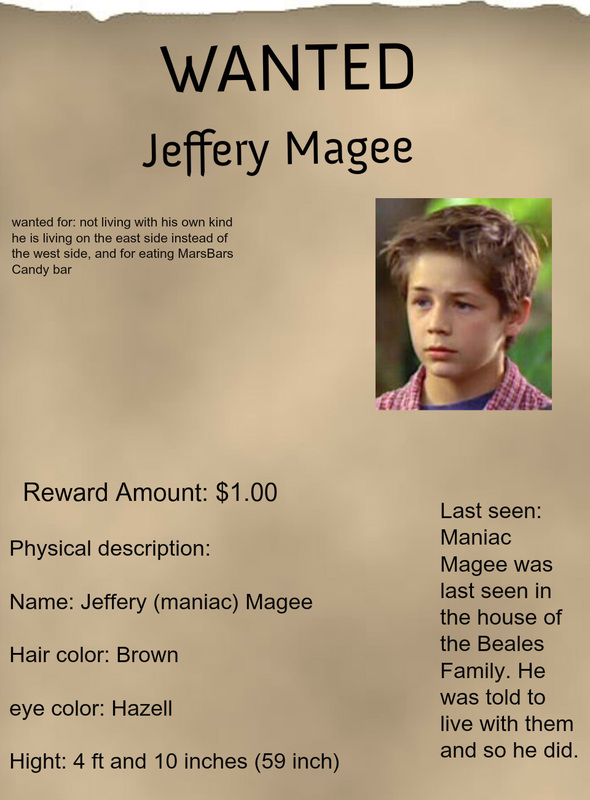
In other words, he still defines home in terms of what he doesn’t have. Other kids can take things for granted like not knocking and using the same toaster, but Maniac doesn’t have these things, and he intuits that going to school will only make that lack feel starker to him. It had to do with homes and families and schools, and how a school seems sort of like a big home, but only a day home, because then it empties out and you can't stay there at night because it's not really a home, where you walk right in the front door without knocking, where everybody talks to each other and uses the same toaster.” It’s not that Maniac objects to school on principle, but that he doesn’t want to face the reality of leaving school and having nowhere else to go. When asked why he’s not in school, “Maniac felt why more than he knew why. While on his own, Maniac never attends school because it reminds him of his homeless status. It’s this sense of being known that he most fears losing, perceiving that the outside world could take it away from him. In another way, the use of his name establishes him as part of the Beale household-known here in a way that he isn’t known by people outside.

Inside his house, a kid gets one name, but on the other side of the door, it's whatever the rest of the world wants to call him.” In one way, Maniac’s real name, Jeffrey, is a connection to his dead parents. But-’ she nodded to the door-‘out there, I don’t know.’ She was right, of course. You know me.’ Because he was afraid of losing his name, and with it the only thing he had left from his mother and father.

When Maniac starts living with the Beale family, he doesn’t want them to use his nickname-bestowed by the strangers of Two Mills-in their house: “He told what he told everyone. Through Maniac’s journey through various homes and his struggles with grief and homelessness, Spinelli argues that, while loss and pain cannot be avoided, they are worth facing in order to find genuine love and a sense of home.Įarly in the story, Maniac perceives home in terms of his fear of lack, and his understanding of home is fragile as a result. When he winds up in the town of Two Mills around age 11, he experiences several different kinds of homes, being taken in by the Beale family, later taking shelter with a lonely old man named Grayson, and briefly living with the troubled McNabs. Maniac lost his parents in an accident when he was a little boy, then ran away from his aunt and uncle’s loveless household. For Maniac, it’s a gradual, painful process in which he’s constantly aware of the losses he’s experienced in the past, and he fears facing them all over again.

Maniac’s story is largely that of an orphan finding home-but it isn’t a tidy, decisive event.


 0 kommentar(er)
0 kommentar(er)
